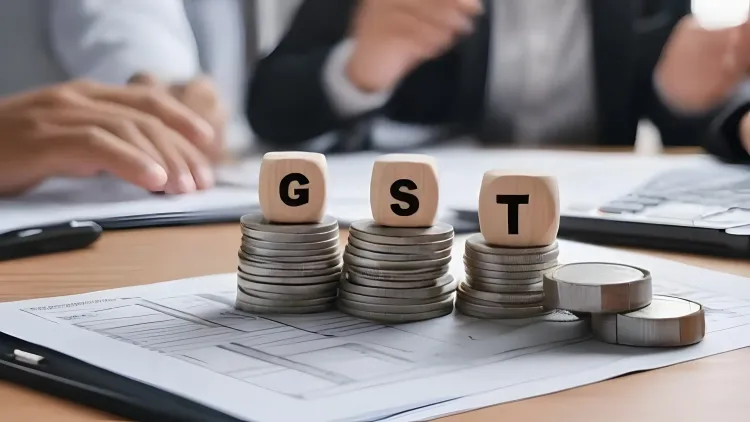How Are Traders Responding to GST 2.0 Reforms and the ‘Vocal for Local’ Initiative?

Synopsis
Key Takeaways
- GST reforms lead to significant savings for consumers.
- The ‘Vocal for Local’ initiative promotes indigenous products.
- 375 items are now more affordable.
- Health insurance policies are fully exempt from GST.
- Traders are committed to advocating for local industries.
New Delhi, Oct 10 (NationPress) In an effort to promote the ‘Vocal for Local’ initiative, the government has emphasized the crucial role of the retail trade industry in the Indian economy, as traders celebrate the recent GST 2.0 reforms. During the seventh meeting of the National Traders’ Welfare Board (NTWB) here, Sunil J. Singhi, NTWB Chairman, commended the newly implemented GST reforms, effective from September 22.
He pointed out that the nationwide trader-led campaign, known as the ‘GST Bachat Utsav’, showcases the appreciation of the trading community towards Prime Minister Narendra Modi for the transformative GST reforms that have provided significant benefits and savings for both consumers and traders.
Sanjiv Singh, Joint Secretary, Department for Promotion of Industry and Internal Trade (DPIIT), urged the Board members to contribute inclusive and practical recommendations for crafting the National Retail Trade Policy, emphasizing the need for broader involvement from grassroots traders.
A primary focus of the gathering was the ‘Vocal for Local’ initiative, which aims to enhance local industries and promote domestically produced goods.
On this occasion, a poster titled ‘Garv Se Kaho, Ye Swadeshi Hai’ was unveiled, reflecting Prime Minister Modi’s appeal to proudly endorse Indian-made products.
All members committed to acting as ambassadors for the campaign to ensure its extensive outreach throughout the nation.
The NTWB Chairman emphasized that the new GST reforms will render a wide array of essential and consumer items more affordable. Buyers of small cars could save approximately Rs 70,000, while reductions in GST on stationery, clothing, footwear, and medicines are projected to result in savings of 7–12 percent.
Health and life insurance policies are now fully exempt, providing up to 18 percent savings, and the GST rate on tractors has been lowered from 12–18 percent to 5 percent, leading to nearly Rs 40,000 in savings.
In total, 375 items, including groceries, agri-equipment, clothing, medicines, and automobiles, have become more affordable under the new GST framework.









